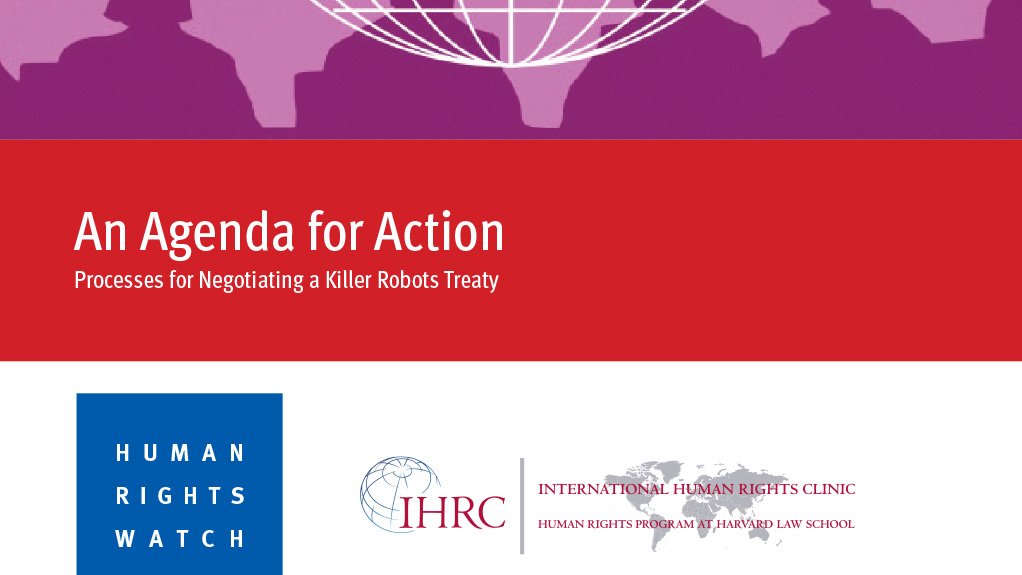- An Agenda for Action: Alternative Processes for Negotiating a Killer Robots Treaty8.65 MB
After close to 10 years of talk with no tangible results, countries should find an effective forum to negotiate a treaty on autonomous weapons systems. The vast majority of states parties to the Convention on Conventional Weapons (CCW) agree that a new legally binding instrument is urgently needed to address the serious threats posed by this emerging technology. Nevertheless, they have not taken concrete steps toward making this goal a reality.
Meetings of the CCW, which began to address autonomous weapons systems in 2014, have failed to produce even voluntary commitments on these novel and dangerous weapons systems, much less a binding instrument. It is time for states to pursue action elsewhere. This report calls on states to initiate a treaty-making process based on past humanitarian disarmament models and explains why such a process would be a more efficient and effective response to the myriad of concerns raised by autonomous weapons systems.
As Human Rights Watch and others have repeatedly pointed out, autonomous weapons systems present a host of ethical, moral, legal, accountability, and security challenges. For example, delegating life-and-death decisions to machines would dehumanize armed violence and pose a threat to human dignity. Autonomous weapons systems that operate without meaningful human control would face difficulties complying with international humanitarian and human rights law due their lack of human qualities, such as judgment and compassion. They would also create a gap in criminal and civil accountability, and the development of such a new technology could lead to an arms race and proliferation to actors with little regard for international law.
Report by Human Rights Watch
EMAIL THIS ARTICLE SAVE THIS ARTICLE ARTICLE ENQUIRY
To subscribe email subscriptions@creamermedia.co.za or click here
To advertise email advertising@creamermedia.co.za or click here











